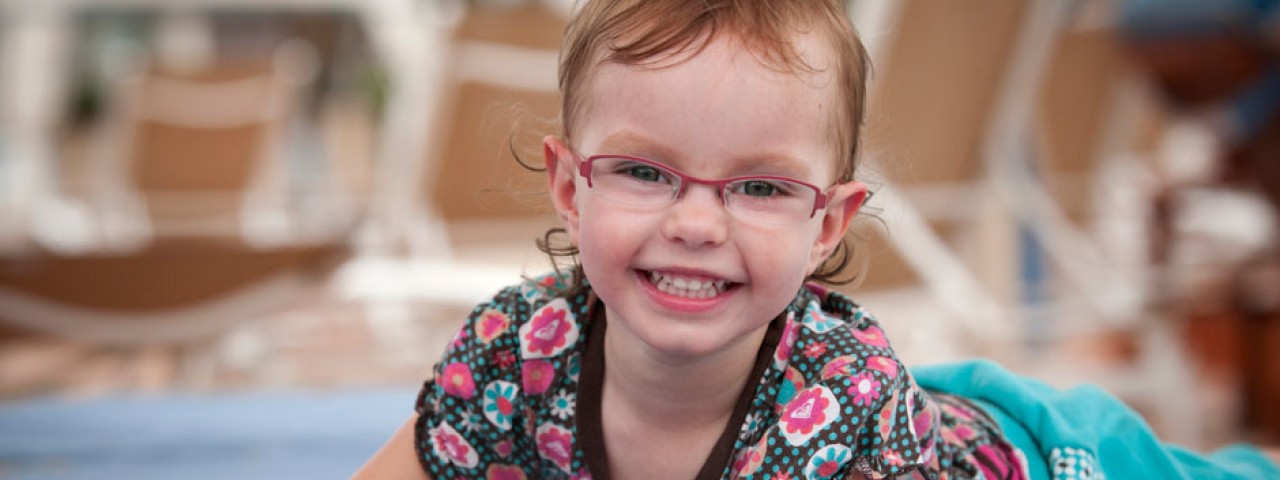TV Can Be Too Stimulating for Babies & Toddlers
- Tweet

When we think about optimal hearing and vision development in very young children, we are generally concerned with children not getting enough stimulation. We worry that children’s overall development might be delayed because of biological or environmental deficits. However, relatively new research tells that these concerns are not the only ones that place children at risk for developmental problems. We must also make sure that our children do not become over or inappropriately stimulated.
Over 10 years ago, the American Academy of Pediatrics publicized their recommendations for young children’s TV watching. They indicated that children 2 years old and older should be limited to less than 2 hours of TV per day. They further recommend that children under 2 should not watch any TV.1 However, the practices of parents and other caregivers do not seem to be following these recommendations. In one study looking at TV viewing of children 2 to 24 months old, 40% of children began watching TV by 3 months old, and viewing time increased as children got older.2 By 3 years old 90% of children watch TV regularly, more than 2 hours per day.3
If experts say that watching TV is bad for children, why would so many parents ignore this advice?
There has been plenty of speculation that parents just plop their children in front of the TV as an “electronic babysitter” to entertain and occupy them. But research shows that this myth has little support. Only about 20% of parents who let their children watch TV said that their children watched because the parents needed to get something done on their own. More than 50% of parents said the most important reasons their children watched TV was because they have them watch programs that will help teach their children something, that it’s good for the children’s brain development, or because watching TV is something their children really enjoy doing. Parents in this study reported that half of the time children spent watching TV was on children’s educational programs. Parents also seem to believe TV watching is a good way for their children to relax and spend time together.2 Based on their reports, it seems like parents generally believe that they are helping their children rather than hurting them.
Why is watching TV problematic? And when is it okay?
As Dimitri Christakis, one of the main researchers on this work, points out in this video, one problem with very young children watching TV is that it can cause later hyperactivity and learning problems. Some experts believe that early TV watching is even associated with attention-deficit/hyperactivity disorder or ADHD, a behavioral condition associated with difficulty concentrating and impulsivity. There is considerable evidence that the types and intensity of visual and auditory stimuli can greatly affect very young children’s neural connections, and thus have lasting impacts on brain development. Compared to real life, many television programs aimed at young children have rapid image and sound changes that, although they are extremely interesting for children, can over-stimulate their senses and brain. For every hour of TV young children watch per day, their risk of having attentional problems increases by almost 10%.3 What children watch matters, however. Watching non-educational entertainment and violent children’s programming seem to be the root of this problem. Educational programs tend to be slower paced, and don’t seem to be connected to later attentional problems.4
What can parents do to help stimulate their children’s vision appropriately?
- Limit the amount of TV young children watch. Most experts agree on no TV before age two, then introducing television in small doses, concentrating on shows developed for small children, and watching together with your child!
- Some children’s television programs are better than others. Shows like Sesame Street and Mr. Rodgers, which are slow paced and focus solely on teaching your children, are better choices. These educational shows have even been shown to be beneficial to the development of some children when they are a little older.3,4 Click here to find out more about which programs are better for young children.
- Rather than watching TV to help your baby relax, sit close to your baby and talk softly to her.
- Read with your child and have books that he can look at and practice flipping pages.
- Expose your child to places with lots of colors and shapes; places like Shelby Farms, the Children’s Museum, and your own backyard.
- Have age-appropriate toys for your child to play with, like rattles, blocks, coloring activities, and play dough.
For more tips visit these websites:
References:American Academy of Pediatrics, Committee on Public Education (2001). Children, adolescents, and television. Pediatrics, 107, 423–426.
Zimmerman, F. J., Christakis, D. A., & Meltzoff, A. N. (2007). Television and DVD/video viewing in children younger than 2 years. Archives of pediatrics & adolescent medicine, 161, 473-479.
Christakis, D. A., Zimmerman, F. J., DiGiuseppe, D. L., & McCarty, C. A. (2004). Early television exposure and subsequent attentional problems in children. Pediatrics, 113(4), 708-713.
Zimmerman, F. J., & Christakis, D. A. (2007). Associations between content types of early media exposure and subsequent attentional problems. Pediatrics, 120, 986 DOI: 10.1542/peds.2006-3322
